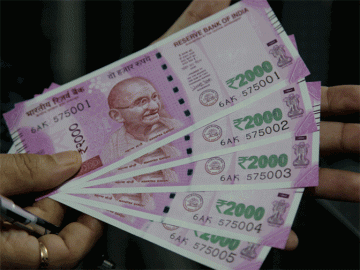The burden of the government’s decision to demonetise currency notes has left the country scrambling for cash. As the situation struggles to improve, India is now facing pressure from its neighbour Nepal which has demanded that the government allow Nepalese citizens to exchange up to Rs 25,000 of scrapped currency notes.
According to an Economic Times report, Nepal, which holds over Rs 5 crore in old Indian currencies with thousands of its citizens still holding onto Rs 25,000 in denominations of Rs 500 and Rs 1,000 notes, has asked India to take some immediate action.
The Ministry of External Affairs (MEA) has approached the Finance ministry to discuss the issue.
Meanwhile, Nepal’s Ambassador to India Deep Kumar Upadhyay has approached the central bank officials to discuss ways to get the old currency exchanged.
“Nepal citizens who travel to India for business, medical, work and academic reasons still hold old Rs 500 and Rs 1,000 currencies,” Economic Times quoted a senior Nepalese diplomat as saying.
“The government of Nepal has urged India to exchange up to Rs 25,000 in old denominations that Nepali citizens are holding,” he added.
Between 2000 and 2015, citizens of Nepal and Bhutan were allowed to carry only denominations up to Rs 100. However, that changed in 2015 after PM Modi’s visits to both the countries in 2014.
“To mitigate the hardships of individuals visiting Nepal or Bhutan from India, it has been decided that an individual may carry to Nepal or Bhutan, currency notes of Rs 500 and/or Rs 1,000 denominations, subject to a limit of Rs 25,000,” read an RBI directive of January 22, 2015.
The problem has become more complex with the fact that Nepal’s Central bank has not yet announced new denominations of Rs 500 and Rs 2,000 as valid.
According to the report, more than 10 lakh Nepalese citizens work in India and return home with India currency. Moreover, many of them send money back home on a monthly basis.
The demonetisation drive has hit thousands of Nepali migrant workers who are employed in India as security guards and daily wagers, as most of them receive salary in cash.
Latest Business News
